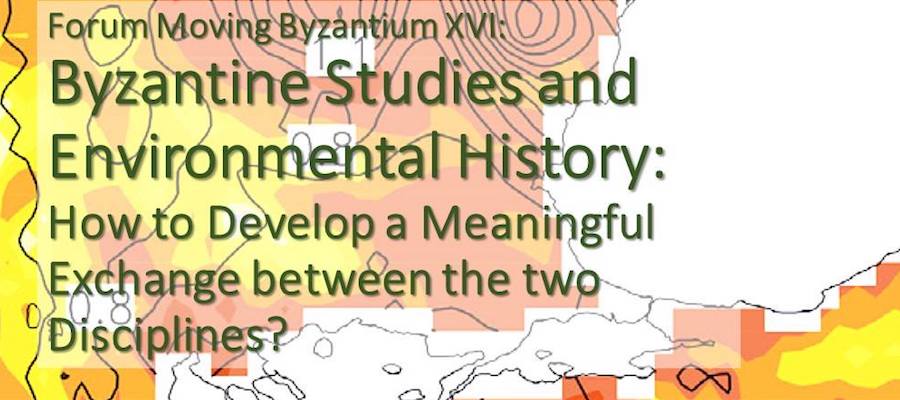Byzantine Studies and Environmental History: How to Develop a Meaningful Exchange between the two Disciplines?, Adam Izdebski (Jagiellonian University, Krakow – Poland & Max Planck Institute for the Science of Human History, Jena, Germany), University of Vienna, December 18, 2018, 11:00 am–12:30 pm
The Forum Moving Byzantium XVI will provide the unique opportunity to discuss with Ass. Prof. Adam Izdebski (Jagiellonian University, Krakow – Poland & Max Planck Institute for the Science of Human History, Jena, Germany) his current work on “Byzantine Studies and Environmental History: How to Develop a Meaningful Exchange between the two Disciplines?”.
Adam Izdebski is assistant professor at the Institute of History of the Jagiellonian University in Krakow. Since the summer of 2018, he is also the leader of the ‘Byzantine Resilience’ Independent Max Planck Research Group at the Max Planck Institute for the Science of Human History in Jena. He specialises in late antique, Byzantine and environmental history (with a geographic focus on the Mediterranean and Central Europe). In his work, he tries to integrate approaches from the natural sciences and the humanities to the study of the past. His publications include a monograph, A Rural Economy in Transition. Asia Minor from Antiquity into the Early Middle Ages (2013); a series of co-authored papers on the climatic and environmental history of the Mediterranean in the special issue of the Quaternary Science Reviews (2016), which he co-edited; a number of papers in the last two volumes of the Late Antique Archaeology Journal (which he led as the guest editor), devoted to the environmental history of the first millennium AD. In 2019, he will publish two new books in Polish, a historiographic and methodological study of interdisciplinary approaches to environmental history, and an eco-biography of Kraków, which he edited and co-authored with seven other colleagues. He is a member of Princeton University’s Climate Change and History Research Initiative.
Until a few years ago, the field of environmental history seemed to be completely unaware of the existence of a vast medieval commonwealth that for more than a millennium continued the traditions of the greatest empire of Antiquity, that of the Romans: Byzantium. In recent years, the growing body of scientific evidence on landscapes and climates of the late antique and medieval Mediterranean forced the Byzantinists themselves to become interested in the questions that are usually asked by environmental historians. Were the Byzantines resilient to climate change? How did they shape their landscapes – and why in this particular way and not in another? What does the Byzantine approach to the environment tell us about Byzantine society, state and economy in general? And does the “environmental factor” offer any new explanations for the shape of Byzantine history? As the two disciplines are drawing closer, this discussion forum will look more closely at the current developments in the interdisciplinary research field of Byzantine environmental history, by asking how Byzantine Studies may benefit from a stronger engagement with environmental history, and how the “Byzantine experience” may widen the horizons of environmental history itself.
After a brief introduction by Ass. Prof. Izdebski, there will be extensive time for discussion, moderated by Dr. Johannes Preiser- Kapeller (Austrian Academy of Sciences) on the basis of preparatory readings.
